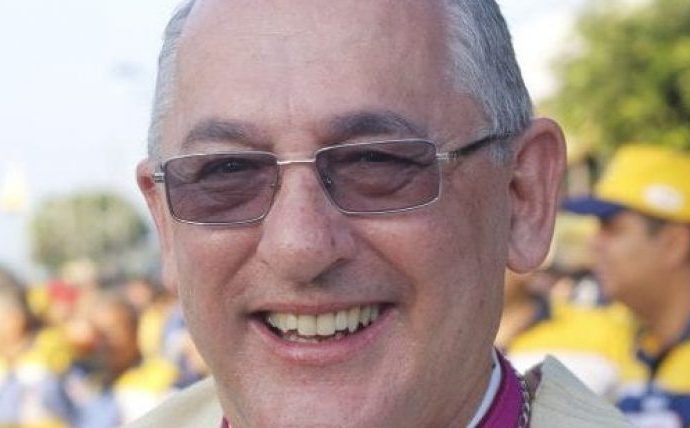The Brazilian archbishop is accused of abusing seminarians

Archbishop Alberto Taveira Corrêa of Belém, an archdiocese with over 2 million residents in the Amazon region of Brazil, faces criminal and ecclesial investigations after being accused of harassment and sexual abuse by four former seminarians.
The allegations were revealed by the Brazilian edition of the Spanish newspaper El País in late December and became a high-profile scandal on January 3, when the weekly news program of TV Globo Fantástico aired a report on the affair.
The names of the former seminarians were not revealed. All of them studied at the Saint Pius X seminary in Ananindeua, in the metropolitan area of Belém, and were between 15 and 20 years old when the alleged abuse occurred.
According to the alleged victims, Corrêa usually held face-to-face meetings with seminarians at his residence, so they didn't suspect anything when they were invited by him.
One of them, identified as B. in the El País story, was attending the Corrêa home for a spiritual guide, but the harassment began after the seminary found out that he was having a love affair with a colleague. He was 20 years old.
According to the report, B. asked for Corrêa's help and the archbishop said the young man had to stick to his method of spiritual healing.
“I got to the first session and it all started: he wanted to know if I masturbated, if I was active or passive, if I liked to switch roles [during sex], if I watched porn, what I thought about when I masturbated. I found his method very uncomfortable, ”he told El País.
After a few sessions, B. accidentally met a friend who told him that he too was participating in that kind of meeting with Corrêa. His friend said the encounters have evolved into other practices, such as getting naked with the archbishop and letting him touch her body. B. decides to leave the seminary permanently and stops meeting with Corrêa.
He and his friend kept in touch and eventually met two other former seminarians with similar experiences.
The story of El País includes frightening details from the tales of former seminarians. A. said he was threatened by Correa after resisting her efforts to get intimate with him. Like B., the seminar discovered she was in a relationship with a colleague.
“He said he was going to tell my family about my relationship at the seminary,” A. told the newspaper. The archbishop would have promised to reinstate A. if he submitted to his requests. He ended up being sent as an assistant to a parish and was later allowed to return to the seminary.
“It was normal for him to pray next to my (naked) body. He approached you, touched you and began to pray somewhere in your naked body, “said the former seminarian.
Another former seminarian, who was 16 at the time, told investigators that Corrêa usually sent his driver to pick him up at the seminary, sometimes at night, for spiritual direction. The encounters, presumably over a few months in 2014, included penetration.
The alleged victims reported that Corrêa used the book The Battle for Normality: A Guide for (Self-) Therapy for Homosexuality, written by Dutch psychologist Gerard JM van den Aardweg, as part of his method.
According to Fantástico's account, the accusations were sent to Bishop José Luís Azcona Hermoso, bishop emeritus of the Marajó Prelature, who has extensive experience working with victims of abuse. The allegations then reached the Vatican, which sent delegates to investigate the case in Brazil.
On 5 December Corrêa released a statement and a video in which he claims to have recently been informed of "serious allegations" against him. He denounced the fact that he had not been "previously questioned, listened to or given no chance to clarify these alleged facts included in the allegations".
Mentioning only that he was facing "allegations of immorality", he said he complained that the alleged accusers had opted for the "path of scandal, with the circulation of news in the national media" with the apparent aim of "causing irreparable harm to me and causing a shock in the Holy Church “.
A campaign in support of Corrêa was launched on social media. Fantástico noted that the archbishop had the support of prominent Catholic leaders in Brazil, including the famous singing priests Fábio de Melo and Marcelo Rossi.
On the other hand, a group of 37 organizations issued an open letter asking for Corrêa's immediate removal from his post while the investigation was ongoing. One of the signatories of the document is the Commission for Justice and Peace of the Archdiocese of Santarém. Archbishop Irineu Roman of Santarém subsequently issued a statement to clarify that he had not been consulted by the Commission on the document.
The Archdiocese of Belém said in a statement that the ongoing investigation prohibits the archbishop and the case from commenting on the case at this time. The National Conference of Bishops of Brazil [CNBB] declined to comment. The Apostolic Nunciature did not respond to Crux's requests for comment.
Corrêa, 70, was ordained a priest in 1973 and became auxiliary bishop of Brasilia in 1991. He was the first archbishop of Palmas, in the state of Tocantins, and became archbishop of Belém in 2010. He is ecclesial adviser of the Charismatic Catholic Renewal in the country.